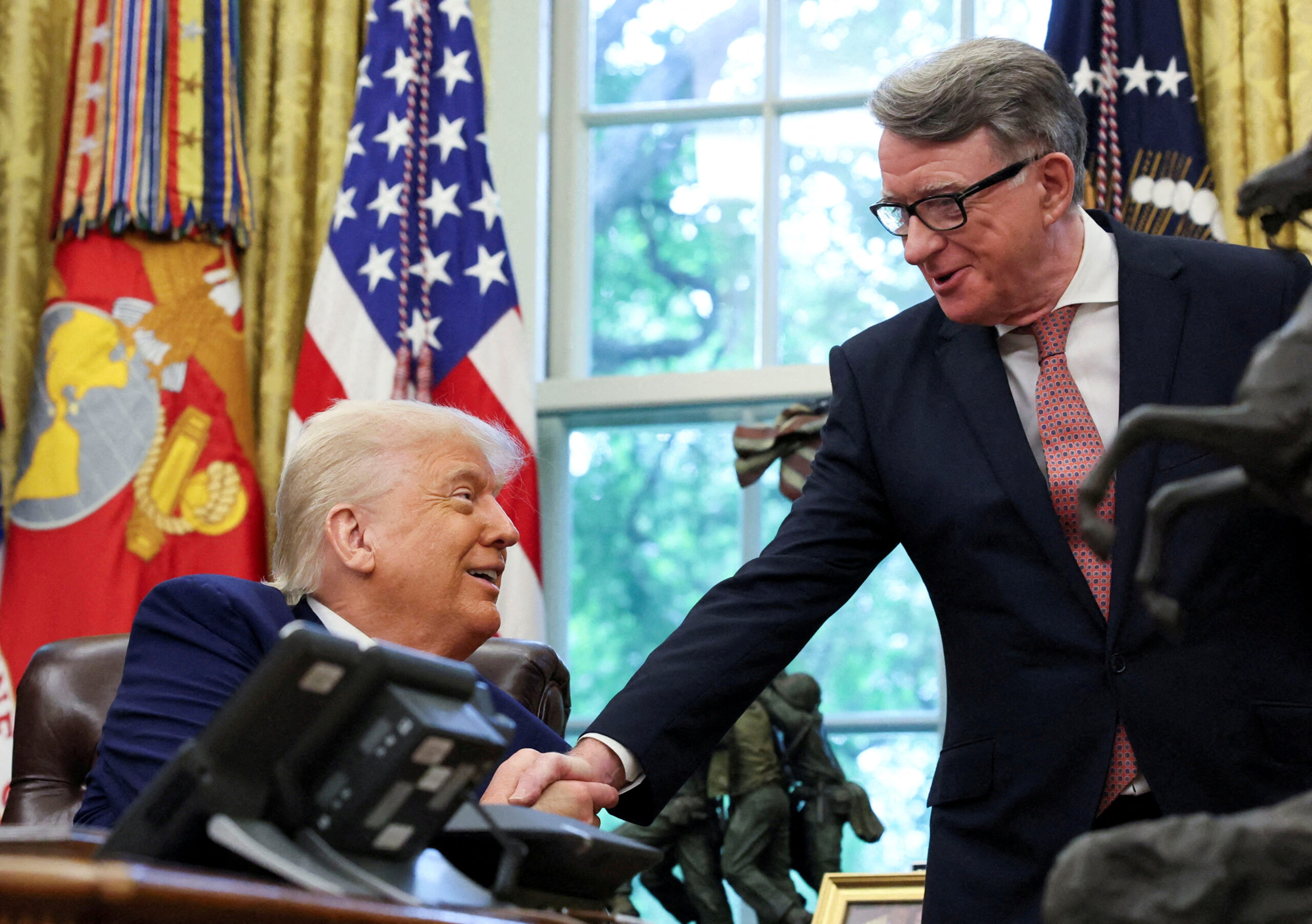The White House’s newly announced trade deal with the United Kingdom could signal the beginning of a major economic resurgence, according to economist Stephen Moore. Speaking with Chicago’s Morning Answer, Moore called the agreement a “big development” and one that may usher in a series of similar deals aimed at reducing global tariffs, boosting American exports, and revitalizing U.S. manufacturing.
President Trump hailed the UK deal as the first of a dozen international trade agreements currently in negotiation. The agreement notably eliminates tariffs on ethanol and significantly reduces barriers to American beef exports for the first time in nearly 40 years. The president said the combined impact of the trade deals and an impending tax relief package would drive a historic economic boom.
“If we get this done,” Trump said during a press event, “this country will be like a rocket ship going straight up.”
Moore, a senior fellow at the Committee to Unleash Prosperity and former Trump economic advisor, acknowledged past concerns about the administration’s tariff strategy but described this new agreement as a promising course correction.
“I’ve been a doubting Thomas on tariffs,” Moore admitted. “But if this leads to mutual reductions in tariffs, it’s a win for both sides. It’s happening faster than anyone expected.”
Under the new deal, tariffs on British steel and aluminum will be reduced from 25% to 10%, and up to 100,000 UK-made cars—many in the luxury market—will be subject to lowered import duties. Moore noted that these changes will benefit American consumers and manufacturers alike, particularly in industries that have suffered under previous tariff regimes.
While the agreement did not resolve disputes over digital service taxes—levies imposed by foreign governments on U.S. tech giants like Google and Amazon—officials indicated those talks are proceeding separately.
Moore emphasized that these deals need to be coupled with meaningful tax relief to fully realize their potential. He expressed frustration with delays in Congress, where a handful of House Republicans from high-tax states are holding up legislation over the state and local tax (SALT) deduction cap.
“They should’ve had this done in the first 100 days,” Moore said. “It’s ridiculous that five or six Northeastern Republicans are holding up the biggest tax relief plan in decades.”
Moore also voiced opposition to any proposal that would raise income tax rates on top earners to appease SALT deduction holdouts, even if such a deal included cuts to capital gains and corporate taxes.
“I’d never support a bill that raises rates,” Moore said. “We don’t raise tax rates—we lower them. If you want to soak the rich, get rid of all the deductions and lower rates for everyone. That’s how you simplify the tax code.”
He advocated for a flat tax system and noted that only 9% of Americans currently itemize their deductions—most of them high-income earners. Eliminating deductions and cutting rates, Moore argued, would level the playing field and fuel growth.
As negotiations continue, Moore said he remains hopeful, estimating there’s an 85% chance the tax relief package will pass by summer’s end. Without it, he warned, the U.S. could face one of the largest tax increases in history when the Trump-era tax cuts expire at year’s end.
Moore also addressed the quiet diplomatic meeting taking place in Switzerland between U.S. trade envoy Scott Bessant and Chinese officials. While details remain scarce, Moore hinted at the possibility of initial trade negotiations being brokered with the help of Swiss intermediaries—a potential breakthrough, given China’s struggling economy and the backlog of unsold goods in its ports.
“China is going to have to come to the table,” he said. “Their economy can’t sustain this. If we can get a deal with China too, that would be a megadeal.”
Despite progress on trade, Moore expressed disappointment that the administration’s proposed spending cuts totaled just $160 billion, arguing that hundreds of billions more could be saved by eliminating fraud, waste, and double-dipping across federal programs.
“We could cut $2 trillion from the budget and most Americans wouldn’t even notice,” he said. “There’s so much waste it’s outrageous.”
Still, Moore ended on an optimistic note, aligning with the president’s forecast of strong economic growth—if lawmakers can move swiftly and decisively.
“Get the trade deals done. Get the tax relief passed. Stop the fraud. That’s the formula,” he said. “Do that, and this economy really could take off like a rocket ship.”





